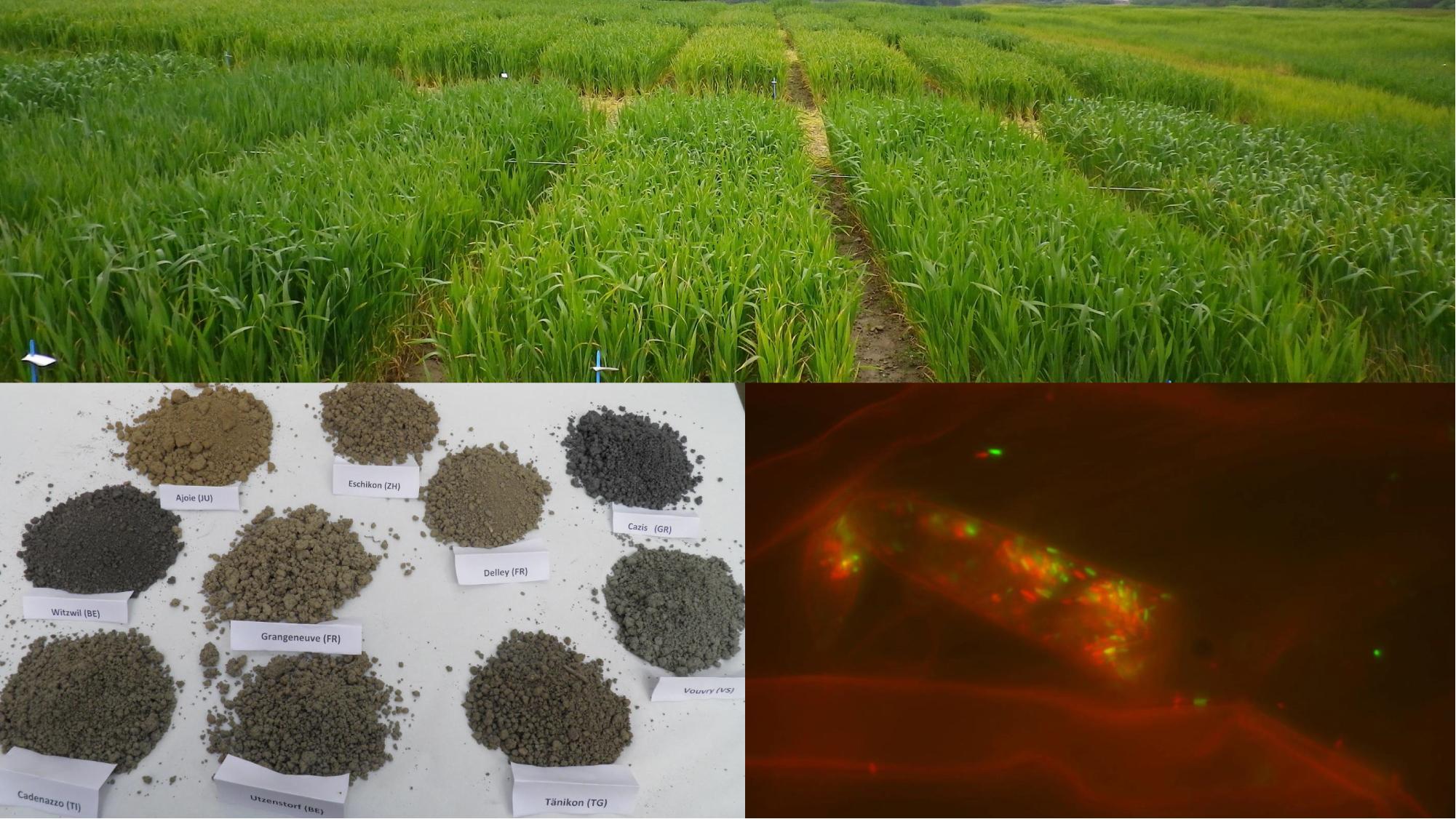"Soil Bacteria" project completed

First study ever investigated the occurrence of Pseudomonas bacteria and their activity in different agricultural soils. Some Pseudomonas groups have a strong potential to act as bio-control organisms.
In Switzerland, little is known about the occurrence, diversity and activity of bacteria that suppress diseases and pest insects in agricultural soils. Nor do we know anything about how different cultivation systems affect these plant-beneficial bacteria. At the same time, there is an urgent need for new, environmentally friendly methods for fighting plant diseases and pests.
Together with their teams, Monika Maurhofer and Christoph Keel have developed a set of tools to investigate how the occurrence or activity of useful soil bacteria (Pseudomonas) is generally linked to resistance against plant diseases in agricultural soils. No significant correlation between disease resistance of soils and specific types of bacteria could be found. However, there was significant correlation between specific genotypes of bacteria and resistance to soil-borne diseases. In addition, the project team discovered clear differences between different cultivation systems as regards plant-beneficial bacteria and soil resistance.
Pseudomonads can help wheat and maize to grow and stay healthy, particularly if these crop plants are suffering stress, e.g. in the event of strong pest infestation or an inadequate supply of nutrients. Developing combinations of different beneficial organisms seems promising; such combinations are tested by the "Biological pest control" project in research phase II.
The targeted increase of microorganisms to suppress diseases by adapting agricultural methods cannot be expected anytime soon. The experiments showed that it is possible to influence soil resistance and the occurrence of certain groups of plant-beneficial bacteria. These options will likely be exhausted fairly rapidly in Swiss agriculture. The main problem is that it would probably be necessary to boost other groups of beneficial microorganisms in the soil for each crop plant and each soil-borne disease.
- “Soil Bacteria” project
- “Biological Pest Control” research phase II project
- Executive Stakeholder Summary (German) (PDF)
- Executive Stakeholder Summary (French) (PDF)
